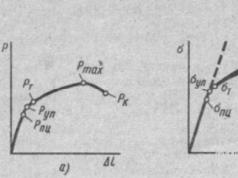In the West, people with Down syndrome are called “alternatively gifted.” In Russia, they are treated in two ways: some call them “sunny”, surround them with love and affection, others turn away.
Children with intellectual, mental and mental disorders- a special group of people who, from birth, have to literally fight for their place in the sun. For many, this path is thorny and difficult, especially for those who have already crossed the age line of 18 years.
Road to nowhere?
The childhood of the boy Valentin was almost no different from the life of children his age. WITH three years he went to kindergarten, although in a special group - for children with developmental delays. Valya was also “special” from birth: doctors diagnosed him with “Down syndrome”.
Then - training at school, in a class for children with mental retardation.
“For 10 years, without a break, my son attended school, and for the last 5 years, on his own. I knew that all this time the child was sitting at his desk and listening carefully to the teacher. And what crafts he brought from school! Younger son, 5 years later, when I was already in the 7th grade, I often took my brother’s work to work on, and they turned out to be the best of all,” said mother Valentina Olga Vasilyeva.
Vali's life changed dramatically as soon as he turned 18 years old. He seemed to be erased from the world, like many “special” children of his age.
My son teaches me a lot too: for example, how to treat offenders and simply love life.
“The doors of the schools are closed: we left school with a certificate of completion of school instead of a certificate. Young people with intellectual disabilities, having learned basic arithmetic, reading, and writing at school, at the age of 18 cease to be disabled from childhood, they are recognized as disabled II, Group III, people who are able to work if others constantly provide them with assistance. But they did not receive vocational or craft training in workshops, CPC, schools, jobs were not created for them, they do not have the opportunity to earn a minimum income, and for a pension for a disabled person of group II, III (in the Kirov region, for example, on average 10 thousand rubles) I can’t live without a part-time job, considering that my mother’s additional payment for care was also withdrawn. Fortunately, I work, but there are so many mothers who raise young disabled people alone! And if, for example, I can’t afford a nanny, what’s next - quit my job?!” – Olga Vasilyeva is perplexed.
Valentin, like many young disabled people, feels like a full member of society and is trying to find his place in life.
“Once they called me from the Theater for Young Spectators in Kirov and said: “Your child said he wants to perform on stage”: he does breakdancing,” said Valentina’s mother. - He fulfills any requests and instructions impeccably, for example, in terms of cleaning. These children are generally very capable of working. Those 12 people with mental disabilities who studied in Valya’s class could become a ready-made labor cell, only they need a mentor. My son teaches me a lot too: for example, how to treat offenders and just love life.”
That's the end of the holiday
In 2010, in Kirov, the parents themselves opened an informal public association “Club 18+” for children with mental and mental disabilities, disabled people of groups I and II. 25 girls and boys learned to make friends, sing and dance, read poetry, sculpt from clay, weave from paper, stage plays, met with creative people of the city, visited theaters, exhibitions, concerts, and prepared for performances at festivals and home concerts.
The club had its own stars. Nikolai Darovskikh, for example, became the winner of the International Inclusive Dance Festival in 2013. A young man with Down syndrome performed “Gypsy Dance” at the Stanislavsky and Nemirovich-Danchenko Musical Theater in Moscow.
The club was created by Kirov resident Vera Darovskikh. The woman knows firsthand that young disabled people need not only care and attention, but also employment, as she herself is raising a disabled son.
Over time, the club was given premises and became a socio-cultural day department of the Regional Center for the Rehabilitation of Young Disabled Persons (Kazanskaya St., 3a.) More and more young people came, and additional help from specialists was required.
Vera Darovskikh repeatedly turned to the governor for help and met with members of the government and ministry officials. The Council of Parents and Guardians of Young Disabled People sincerely believed that the social security authorities would provide support to the club.
“Instead, parents were asked to pay for existing social services at very high prices. We were forced to refuse,” noted Vera Alexandrovna.
Despite their disability, these are in fact adults who are humiliated by “childish” activities.
After the day department of sociocultural rehabilitation was closed, Vera Darovskikh turned for help to Moscow, to Ella Panfilova, who at that time was the Commissioner for Human Rights in Russia. Only then did the situation move from the “dead point”: rates, social workers, and a new place for classes with young disabled people were again found. At the Social Services Center, on the street. Pugacheva, 24, there was a small office for handicrafts, filled with old furniture.
“Musical, theatrical and entertainment activities at the level of matinees in kindergarten no longer give anything young disabled person: they do not prepare him for a future independent life without parents, they do not “cultivate” him, they do not educate him. Such “social services” for young people with disabilities are a thing of the century before last. Despite their disability, these are in fact adults who are humiliated by “childish” activities,” says Vera Darovskikh.
Just 2 hours in the morning - that’s all the time for “rehabilitation” allocated for young disabled people from all districts of the city of Kirov and the region.
“For some young disabled people living in remote areas of the city, this schedule is not suitable, there is not enough space, and the location itself is inconvenient and simply incompatible with their health,” says Vera Alexandrovna.
So young people do not study, and do not work, and are not rehabilitated. And how many similar examples can you count across the country?
Happiness is at home
Parents raising disabled adult children often do everything possible for them, but have a very vague idea of what awaits them in the future.
“The prospects for such people are too limited. There are, of course, boarding schools that accept young disabled people, but what normal mother would voluntarily send her child to such an institution - this would mean destroying him with her own hands! Their place is at home, among loved ones. It is important that the state pays attention to our children - even if they are already big, but so unprotected. The main task of healthy and smart adults is to socialize them and prepare them for independent life, he believes Member of the Council of the “Club 18+”, mother of a disabled daughter Alla Rossikhina.- The main thing for our children is communication and socialization. There should be an interest club for young disabled people aged 18 to 45, where they could get to know each other and communicate.”
Often in society, “special” people are looked at as doomed, for whom the only way to go to a boarding school is.
There are, of course, boarding schools that accept young disabled people, but what normal mother would voluntarily send her child to such an institution.
“There is simply no place for many young disabled people there. On the contrary, they must live their lives at home, in their apartment, among friends, acquaintances, relatives and helpers. This requires new forms of social work, says Vera Darovskikh. “They do not require millions of investments, and there are examples of this.”
Thus, in the Vladimir region, young people with severe disabilities are being prepared for life without parents in a so-called “study living apartment.” The children are temporarily placed in a separate apartment without their parents, but under the guidance of a mentor, where they are taught how to run a household: clean the house, cook, do laundry, do shopping, and spend their pension correctly and economically.
“In my opinion, it is very important to take care of social support for young disabled people, but for this social services All families in which there are disabled adults should know, be interested in what they are doing and what help they need,” noted Vera Alexandrovna. “Disabled people have the right to assistance not out of mercy, but by legal right.”
By implementation in the constituent entities Russian Federation programs to support young disabled people in obtaining vocational education and assistance in subsequent employment for 2016 - 2020.
Currently, scattered measures are being implemented in Russia for the vocational guidance of young disabled people, their training and subsequent employment. The approved Plan will make it possible to systematize the work of regional executive authorities, employment services and educational organizations in implementing programs to support people with disabilities.
“This year, the Russian Ministry of Labor will prepare a standard program for supporting young disabled people in employment with the aim of a unified approach to this process,” commented Maxim Topilin, Minister of Labor and Social Protection of the Russian Federation. “The standard program will contain an algorithm for accompanying a disabled person, taking into account impaired body functions.”
“Based on the standard program, regions should prepare their own programs and begin their implementation in 2017,” the head of the Russian Ministry of Labor emphasized.
In accordance with the approved Plan, regional programs will provide for the implementation of such activities as vocational guidance for disabled children, people with disabilities and people with disabilities, inclusive vocational education, promoting the development of entrepreneurial skills among young people with disabilities and others. It is also planned to train specialists from employment services in the specifics of organizing work with people with disabilities.
In the future, work to support young disabled people, according to the Minister, will be carried out on the basis of information from the Federal Register of Disabled Persons, which will include data on the professional potential of a disabled person.
“Based on the results of the implementation of regional programs in 2017-2019, a standard service for accompanying a disabled young person when resolving employment issues will be developed,” said Minister Maxim Topilin. “A unified and mandatory standard for all regions must be approved by 2020.”
For information:
According to the Russian Ministry of Labor, currently about 3.9 million disabled people are of working age. At the same time, 948.8 thousand of them work, or 24% of the total number of disabled people of working age.
State program“Accessible Environment” for 2011-2020 provides for an increase in the share of employed disabled people of working age in the total number of disabled people of working age to 40% by 2020.
According to the World Health Organization classification, a young disabled person is a disabled person aged 18-44 years. At the same time, the activities of the Plan cover persons from 14 years of age, since the federal law dated July 24, 1998 No. 124-FZ “On the basic guarantees of the rights of the child in the Russian Federation” establishes that the executive authorities of the constituent entities of the Russian Federation take measures to provide vocational guidance and vocational training for children over the age of 14 years.
The Ministry of Labor and the Ministry of Education and Science decided to help people with disabilities (aged 18 to 44 years) in obtaining vocational education and assist in subsequent employment.
According to the authors, the program is designed for regions. It should include the main indicators and analysis of the social situation with employment, namely: the state of employment of people who are especially in need of social protection and have difficulty finding work; The structure of labor resources should be reflected, including information on employment in the specialty, not in the specialty, and the level of professional education.
This program can be drawn up as an independent document or included in the state program of a constituent entity of the Russian Federation. At the same time, subjects can develop their own separate regional programs.
The list of exemplary activities includes: career guidance for people with disabilities, their support in obtaining vocational education, interaction of resource educational and methodological centers for people with disabilities with universities, development of inclusive education, accompanied by employment promotion.
The program also provides for the holding of a professional skills competition “Abilimpix” in each region. The winners of regional competitions will be able to take part in the national championship of professional skills among people with disabilities “Abilimpix”.
The effectiveness of the program is expected to be assessed using performance indicators. These include the proportion of those who found a job within 3 and 6 months after receiving higher or secondary education; the share of those who found a job within 3 months after completing additional professional programs (professional development programs and professional retraining programs); The level of remuneration of employed graduates is also taken into account.
Meanwhile, the Ministry of Transport of the Russian Federation has changed the rules for servicing people with limited mobility when transporting passengers and luggage by road and urban ground electric transport, reports ROOI Perspektiva.
According to the amendments, the standard of accessibility of stopping points, bus stations and bus stations for people with limited mobility has changed, as well as the accessibility of the vehicles themselves that regularly transport passengers along established routes. The changes also affected the assessment of the quality of transport services for the population and its accessibility.
Now all bus terminals and bus stations that are served by regular transport routes must meet the requirements of an accessible environment. In addition, all vehicles must be equipped with heating and air conditioning systems: a temperature of at least 12 degrees Celsius when the average daily outside air temperature is below 5 degrees Celsius, no more than 25 degrees Celsius when the average daily outside air temperature is above 20 degrees Celsius.








